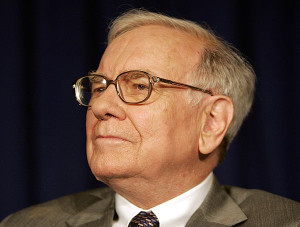By Peter Ward August 14, 2015
Google Creates Alphabet
Google announced a huge structural overhaul on Monday. The internet search giant will now be controlled by a newly-formed parent company, called Alphabet, and many of Google’s projects less central to its core business will be spun out as new entities under the Alphabet umbrella.
Google’s business interests now reach far beyond the search engine technology the company was founded on. Google X, for example, is the company’s ‘moonshot’ project lab, known for taking on ambitious ideas such as drone delivery and high altitude balloons capable of delivering internet access.
Google X is just one of the departments already confirmed to be spinning off. Nest, the smart home device manufacturer Google bought in 2014, will be a separate entity under the new structure. Calico, a project with the bold aim of increasing the longevity of the human life, has also been spun out, as has Sidewalk Labs, which is working to improve modern cities. Google Capital, the company’s investment arm and Google Ventures, the venture capital investment division, have both been spun out separately as well.
In a blog post titled ‘G is for Google’, CEO Larry Page announced he would be CEO of the new parent company, with fellow founder Sergey Brin named President. Sundar Pichai, previously product chief at Google, has been named the new CEO of the slimmed down version of the search company.
The changes will take place in the coming months. Google shares jumped 5% in after hours trading following Monday’s announcement.
China Devalues Currency

China’s renmibi or yuan. ©sithuseo
China lowered the value of its currency by 1.1% on Thursday, bringing the total devaluation this week to 4.4%, the largest drop in more than two decades.
The Chinese yuan, also known as the renminbi, had long been been linked to the U.S. dollar. And as the dollar has strengthened over the last 12 months, the renminbi strengthened as well, despite downward pressure on the currency generated by weakness in the Chinese economy. China’s is thought to have weakened the currency to stimulate the economy by giving a boost to exporters, who can now offer cheaper prices to overseas buyers.
The People’s Bank of China, China’s central bank, sets the currency rate each day, and the value can then either increase or decrease by as much as 2% on either side of that figure. Lately, the renminbi has been pushed to the lowest end of its range.
On Tuesday, China announced a new monetary policy to set the daily rate based on the previous day’s trading, a more market-focused approach. This could mean further devaluation in the coming days should the currency trade at the lower end of the set range again.
Experts quoted in an article in The Guardian claim that the devaluation of the Chinese currency could cause a “tidal wave of deflation” felt across the world economy.
Meanwhile, Time published an explainer infographic on Wednesday which neatly summed up the reasons for the devaluation and the likely effects it will have on the U.S. Some have speculated that it could delay an interest rate hike in the U.S. Others have predicted it will set off a currency war, with other countries devaluing their own currencies so that their products can compete on the global market.
Greek Economy…Grows
Greece shocked the world this week when it reported that its economy actually grew in the second quarter of the year. According to data released on Thursday, Greek GDP rose 0.8% for the three months ended June 31st. Analysts had widely expected the country’s GDP to shrink during the quarter.
The figures, published by the Greek agency Elstat, were based on a so-called flash estimate, or preliminary data. Elstat also revised figures for the first quarter, showing that the economy was flat instead of slowing by 0.2%.
The surprise comes just as Greece’s parliament prepares to vote on bailout plans. Greece continues to struggle under the weight of drastic amounts of debt. The country must pay $3.8 billion to the European Central Bank by Thursday. If the bailout plan is not accepted before then, Greece will have to seek emergency funding. The Greek government, led by Prime Minister Alexis Tsipras, has recently defended the deal, which requires the country to make broad budget cuts in order to receive the bailout from Europe.
The second quarter’s little spurt of economic growth in Greece is not expected to last, however. The period covered in the latest data does not include the time when Greek banks were shut, and the country’s economy is still on course to shrink by around 2% in 2015, economists said.
Berkshire Hathaway Buys Precision Castparts in Historic Deal

Warren Buffett ©Javier
Warren Buffet’s Berkshire Hathaway has made a gigantic bet on U.S. aerospace manufacturing, announcing on Monday the acquisition of Precision Castparts for $32.3 billion. The deal for the aerospace components company is Berkshire Hathaway’s biggest ever.
Berkshire will pay $235 a share for Precision, a 20% premium on the company’s share price at the close of trading last week. Precision reported a $1.5 billion profit in 2014.
Buffet’s conglomerate hopes that growing numbers in airline travel can spur higher demand for aircraft manufacturing in the future.
The mega deal is just the latest in what is turning out to be a huge year for mergers and acquisitions – with $2.7 trillion in deals already announced, the New York Times reports.
U.S. film industry gender bias revealed

Hollywood ©Shinya Suzuki
Quartz dug deep into data from Hollywood’s film industry this week, and found that the business remains as male-dominated as ever. Reporter John West uses charts and data visualizations to display the gender bias on show in U.S. filmmaking.
The percentage of women employed as actors, directors, writers and producers has barely increased at all over the last 15 years, the article’s first graph shows. Figures such as these prompted the American Civil Liberties Union to call for an investigation into the hiring policies of major film studios earlier this year.
The article also links the lack of female jobs with declining revenues in the U.S. film industry. As ticket sales have declined, big studios have been less inclined to try out new directors, actors and stories, instead rebooting old movies and producing sequels, which are thought to be more assured of success.
The data collected here also indicates that movies with higher percentages of female actors are less likely to receive higher budgets. But in addition to being unfair, this turns out to be a poor business decision: the numbers also show that the highest performing American films are those with an equal number of male and female actors.
This entry was posted on Friday, August 14th, 2015 at 5:14 pm. It is filed under Week in Review. You can follow any responses to this entry through the RSS 2.0 feed.
Comments are closed.
